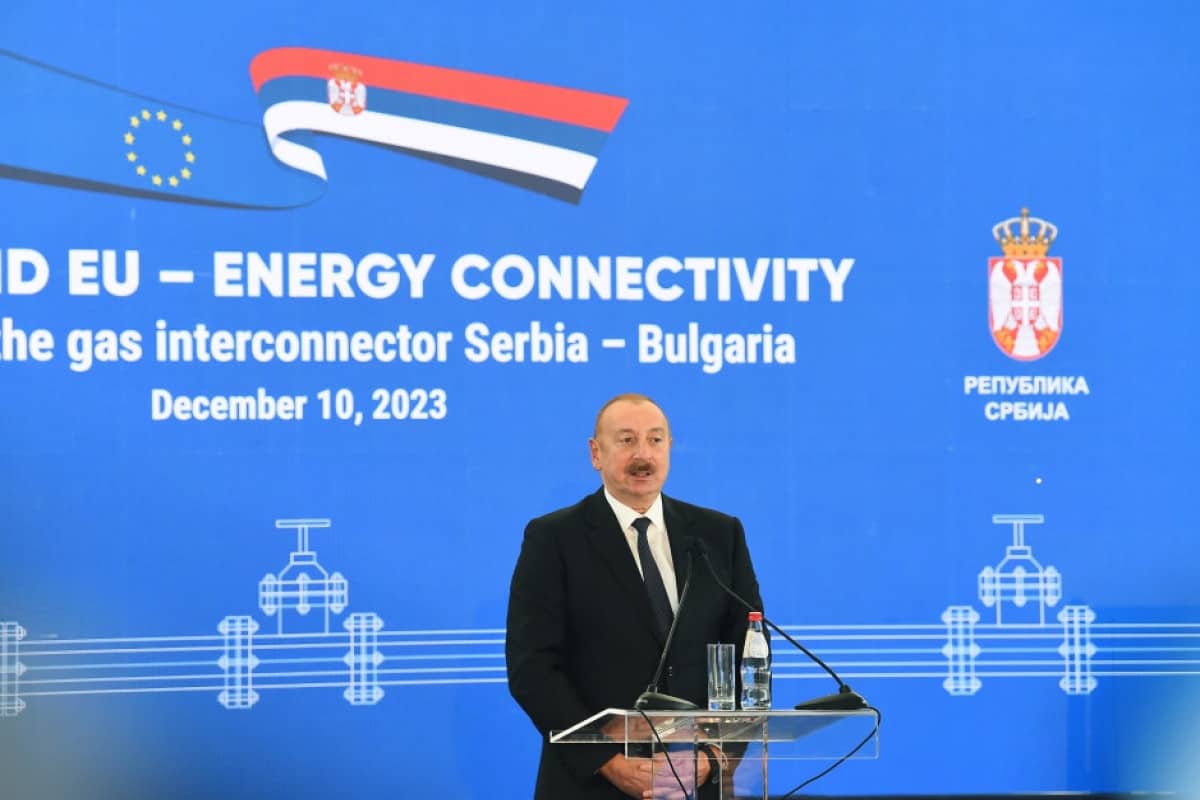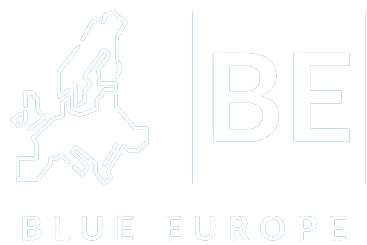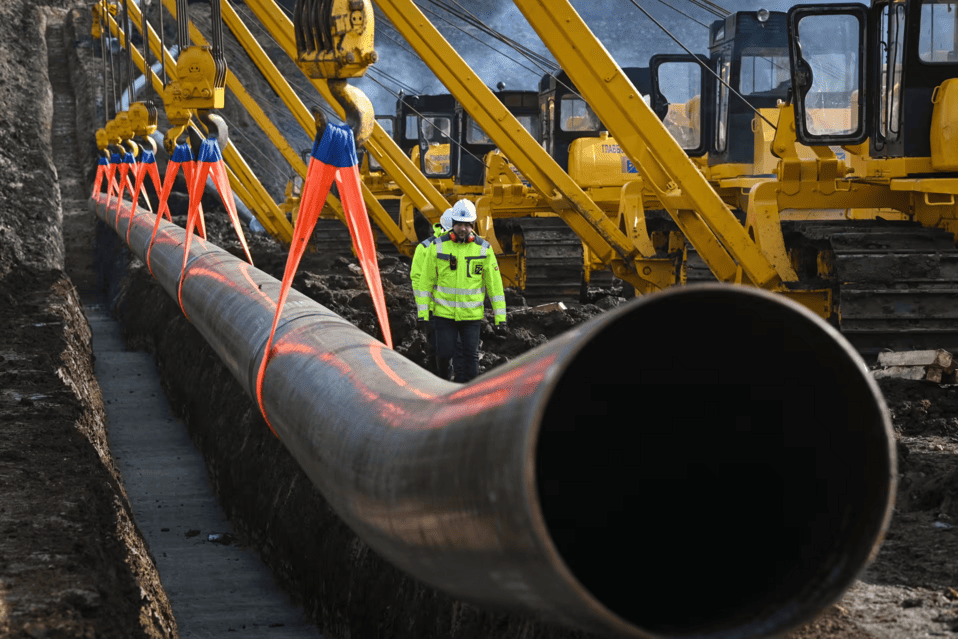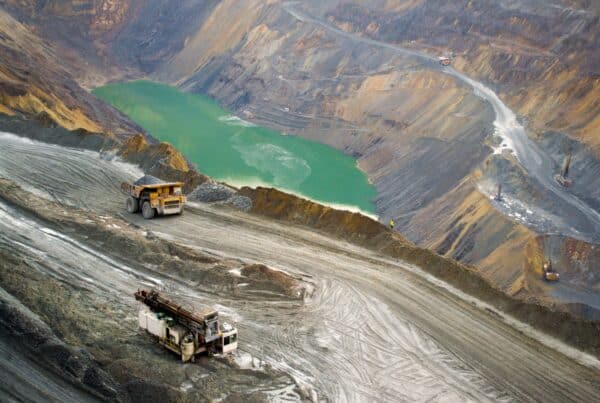The Serbo-Bulgarian Gas Connector, formally known as the Interconnector Bulgaria-Serbia (IBS), represents a critical infrastructural and geopolitical development in the energy sector of Southeast Europe. The inauguration of the construction works on the Bulgarian section of this gas interconnector was a significant milestone, underscoring its importance as an EU Project of Common Interest within the framework of the Central and Southeastern Europe energy connectivity (CESEC) High-Level Group. The project’s commencement was officially marked in a ceremony in Golyanovtsi village, Kostinbrod Municipality, Sofia district, attended by key EU representatives [1].
The EU’s contribution to this project exceeded €83 million through the Connecting Europe Facility (CEF), plus structural funds for the Bulgarian Section and support from the EU’s Instrument of Pre-Accession for the Serbian part. Following its completion, the gas interconnection boasts an annual capacity of 1.8 bcm with a reverse flow capability.
The interconnector plays a pivotal role in enhancing energy security and diversification in Serbia and the broader Western Balkan region. By linking Serbia’s gas network with Bulgaria’s, it facilitates access to a wider array of energy sources, including Azerbaijani gas and potential supplies from the future liquefied natural gas (LNG) terminal in Alexandroupoli, Greece. This development is particularly significant given that natural gas accounts for 13% of Serbia’s primary energy consumption, previously supplied through limited entry points [2].
The details of the IBS: key characteristics and funding
The construction of the Niš-Dimitrovgrad-Bulgaria gas interconnector commenced on 14 January 2022, with the project reaching completion in December 2023. The pipeline, which extends approximately 170 kilometres, connects the gas transmission networks of Bulgaria and Serbia. Spanning 109 km on the Serbian side and designed for a maximum pressure of 55 bar, the pipeline has a capacity of 1.8 billion cubic metres per year, covering approximately 60% of Serbia’s annual gas demand. It incorporates additional gas metering and regulation stations in Bela Palanka, Pirot, and Dimitrovgrad, thereby extending gas accessibility to key urban and industrial centres. It incorporates reverse flow capabilities, indicating a significant boost for regional energy security and diversification of gas supply sources [3].
This infrastructure initiative is aligned with broader environmental and energy transition goals. Natural gas, due to its lower environmental impact and versatility in power generation, is considered a transitional fuel towards a more sustainable and renewable energy future [4]. It supports the development of efficient, small-scale combined heat and power systems in Serbian towns and municipalities, enhancing the nation’s energy efficiency and reducing its carbon footprint.
This strategic infrastructure was financed through a combination of EU grants totalling EUR 49.6 million, a EUR 25 million loan from the European Investment Bank, and national funds from the Republic of Serbia amounting to EUR 22.5 million. The IBS received substantial financial backing from the European Union, with the Bulgarian section co-funded with EUR 27.6 million under the Connecting Europe Facility Energy programme and additional EUR 6 million from structural funds. Notably, the Serbian section benefited from an EU grant of EUR 49.6 million through the Instrument for Pre-Accession Assistance (IPA) scheme [5].
In the context of EU support for Serbia’s energy sector, the European Union remains the largest donor, contributing over EUR 1 billion in grants since 2000. The EU’s comprehensive Energy Support Package, provided in 2023 and amounting to EUR 165 million, aims to alleviate the impact of rising energy costs and support the green transition for citizens and small to medium-sized enterprises. This is further complemented by significant investments in renewable energy projects, including EUR 31 million for the Kostolac wind farm project and EUR 16.1 million for the modernization of the Vlasina hydro power plant, underlining the EU’s commitment to Serbia’s sustainable energy development and environmental stewardship [6].
The inauguration of the project: political and international implications
In a notable development underscoring regional collaboration and energy diversification, the inauguration of the Serbia-Bulgaria gas interconnector’s trial operation was jointly officiated by Serbian President Aleksandar Vucic, Bulgarian President Rumen Radev, Azerbaijani President Ilham Aliyev, and the EU’s representative in Serbia, Emanuele Giaufret.
The ceremonial activation, taking place at the Trupale gas station near Niš, involved the unified engagement of a control mechanism to initiate gas flow through the pipeline. Energy and Mining Minister Dubravka Djedovic Handanovic highlighted the project’s significance as a monumental international endeavour, crucial for enhancing the gas supply infrastructure not only across eastern and central Serbia but also throughout central and eastern Europe [7]. The initiative is poised to bolster the gasification of southern Serbia, including key economic centres such as Niš, Pirot, Dimitrovgrad, and Bela Palanka [7]. President Radev articulated the project’s transformative impact on Europe’s energy landscape, while President Aliyev emphasized its contribution to Serbia’s development and the broader objective of fortifying energy security across Europe [7].

The completion of the IBS celebrated in December 2023 was heralded as a pivotal achievement for regional cooperation under the CESEC initiative. By connecting to Bulgaria, Serbia opens its market to non-Russian gas sources, diversifying its energy portfolio and enhancing the regional market integration.
Speaking about a strengthened European energy market, Azerbaijani economist and MP Vugar Bayramov said [8]: “With the launch of the Serbia-Bulgaria interconnector, Serbia’s opportunities for importing Azerbaijani gas have expanded. Further development of cooperation between Serbia and Azerbaijan in the field of gas transportation is expected. Serbia is one of the countries that will be able to receive gas from the Serbia-Bulgaria interconnector, which has become a new element of the Southern Gas Corridor, implemented as a result of the political will of the President of Azerbaijan. Increasing the capacity of the Serbia-Bulgaria interconnector from 3.5 billion to 5.5 billion cubic meters may allow countries such as Hungary, Slovakia, Romania, and North Macedonia to buy Azerbaijani gas. Thus, the role of our country in strengthening the energy security of Central and Eastern Europe is increasing. This further strengthens Azerbaijan’s strategic position. This year, Azerbaijan will increase natural gas exports to Europe to 12 billion cubic meters. After 2026, Azerbaijan will be able to supply 20 billion cubic meters of gas to Europe.”
The project is emblematic of a broader shift towards reducing dependence on Russian gas supplies, with Serbia and other countries in central and southeastern Europe gaining access to Azerbaijani exports through this new conduit. The pipeline, running from the Bulgarian town of Novi Iskar to the Serbian city of Niš, not only offers Serbia an alternative to Russian gas but also facilitates access to LNG from the Greek port of Alexandroupolis and Azerbaijani gas, marking a significant step in the diversification of energy sources in the region.
A strengthened cooperation with Greece
A pivotal advancement in the direction of acquiring energetic resilience is the establishment of a gas interconnector with Bulgaria, enabling Serbia to tap into the natural gas reserves of the Caspian region and the LNG facilities at the Greek port of Alexandroupolis. This development positions Greece as a critical partner in Serbia’s gas supply strategy.
Further enhancing Serbia’s gas supply matrix, during a Serbia-Greece business forum in Belgrade, Minister Đedović Handanović revealed that Serbia has secured agreements to import 300 million cubic meters of gas annually from the Alexandroupolis LNG terminal, which is poised for imminent operation [9].
Looking ahead, Serbia’s strategic vision encompasses the construction of additional gas interconnectors with North Macedonia and Romania, aimed at completion prior to Belgrade’s hosting of the EXPO 2027 exhibition. These infrastructural expansions are not merely about securing energy supplies; they also aim to solidify Serbia’s position as a critical transit nexus for gas flows into Central and Eastern Europe.
Beyond gas, Serbia is actively diversifying its oil supply sources, currently dependent on the Adria oil pipeline. Plans are afoot for a collaboration with Hungary on a 128-kilometer oil pipeline, slated for 2027, to boost the supply security for Serbia’s refineries and market [10]. Additionally, discussions are ongoing to establish a connection with oil reserves in Greece via North Macedonia, indicating Serbia’s comprehensive approach to energy supply diversification and infrastructure investment [9].
This broad spectrum of energy infrastructure projects reflects Serbia’s commitment to not only enhancing its energy security and supply diversity but also to engaging in collaborative ventures with regional partners, thereby contributing to the stability and integration of the wider Southeast European energy market.
Conclusion and future prospects: the strategic partnership with Azerbaijan
In 2022, the established energy distribution network within Europe experienced significant disruptions, thrusting Azerbaijan into a pivotal role in enhancing the continent’s energy security. As a consistent supplier, Azerbaijan is instrumental in mending these disruptions, a process that necessitates time.
Azerbaijan’s strategic entry into the global market has positioned it as a key player in the eyes of European gas consumers, who are keen on broadening their collaborative efforts. This dynamic facilitates the growth of Azerbaijan’s trade, political, and cultural connections, underpinned by a commitment to mutual benefits and the expansion of relationships, rather than leveraging energy resources for geopolitical pressure.
Since 2007, Azerbaijan has been recognized as a gas-exporting country, initially serving two primary markets: Georgia and Turkey. However, from December 31, 2020, its market expanded to include other European countries, progressively extending its gas export geography annually [11]. Greece, Italy, Bulgaria, and Romania have commenced purchasing Azerbaijani gas, with Hungary expected to join the list by the end of the year and Serbia slated to receive 400 million cubic meters of gas in 2024. Discussions are underway to extend these exports to Slovak and German markets too.
The anticipated increase in demand from European consumers, expected to double by 2027 [12], underscores the urgency for Azerbaijan to develop new gas fields. This expansion is not only vital for meeting the growing European demand but also presents an opportunity for Azerbaijan to augment its revenue through the global energy market.
To conclude, the successful realization of the IBS project underscores the strategic importance of regional energy cooperation and infrastructure development in ensuring energy security and sustainability. It also exemplifies the critical role of EU funding and support in facilitating these transnational projects that contribute to the diversification and resilience of energy supplies in Europe.
References
[1] European Commission, ‘Start of construction works launched on the Bulgarian section of the gas interconnector Bulgaria – Serbia’, News Announcement. [Online]. Available: https://energy.ec.europa.eu/news/start-construction-works-launched-bulgarian-section-gas-interconnector-bulgaria-serbia-2023-02-01_en[2] International Renewable Energy Association, ‘Energy Profile – Serbia’, IRENA, 2023. [Online]. Available: https://www.irena.org/-/media/Files/IRENA/Agency/Statistics/Statistical_Profiles/Europe/Serbia_Europe_RE_SP.pdf
[3] EU Delegation to the Republic of Serbia, ‘Gas Interconnector Serbia – Bulgaria’, EU u Srbiji. Accessed: Mar. 07, 2024. [Online]. Available: https://europa.rs/gas-interconnector-serbia-bulgaria/?lang=en
[4] C. Gürsan and V. de Gooyert, ‘The systemic impact of a transition fuel: Does natural gas help or hinder the energy transition?’, Renewable and Sustainable Energy Reviews, vol. 138, p. 110552, Mar. 2021, doi: 10.1016/j.rser.2020.110552.
[6] European Commission, ‘The EU disburses €450 million to the Western Balkans partners delivering on the Energy Support Package for the region’, Aid, Development cooperation, Fundamental rights. [Online]. Available: https://neighbourhood-enlargement.ec.europa.eu/news/eu-disburses-eu450-million-western-balkans-partners-delivering-energy-support-package-region-2023-06-09_en
[7] T. N123456, ‘Natural gas from Azerbaijan: Serbia-Bulgaria gas interconnector put in trial operation’, N1. [Online]. Available: https://n1info.rs/english/news/natural-gas-from-azerbaijan-serbia-bulgaria-gas-interconnector-put-in-trial-operation/
[8] N. Maharram, ‘Opening of the Serbia-Bulgaria interconnector: Azerbaijan entered this global market in a timely manner’, Apa.az. [Online]. Available: https://en.apa.az/economy/opening-of-the-serbia-bulgaria-interconnector-azerbaijan-entered-this-global-market-in-a-timely-manner-opinion-418985
[9] Balkan Green Energy News, ‘Serbia expects LNG deliveries from Greece to start soon’, Balkan Green Energy News. [Online]. Available: https://balkangreenenergynews.com/serbia-expects-lng-deliveries-from-greece-to-start-soon/
[10] E. Szőke, ‘Hungary’s FM announced new oil pipeline with Serbia’. [Online]. Available: https://ceenergynews.com/oil-gas/hungarys-fm-announced-new-oil-pipeline-with-serbia/
[11] W. Howey, ‘Azerbaijan’s gas exports to the EU face challenges’, Economist Intelligence Unit. Accessed: Mar. 07, 2024. [Online]. Available: https://www.eiu.com/n/azerbaijans-gas-exports-to-the-eu-face-challenges/
[12] D. O’Byrne, ‘Azerbaijan says on target to double gas exports to Europe’, Eurasianet. Accessed: Mar. 07, 2024. [Online]. Available: https://eurasianet.org/azerbaijan-says-on-target-to-double-gas-exports-to-europe





